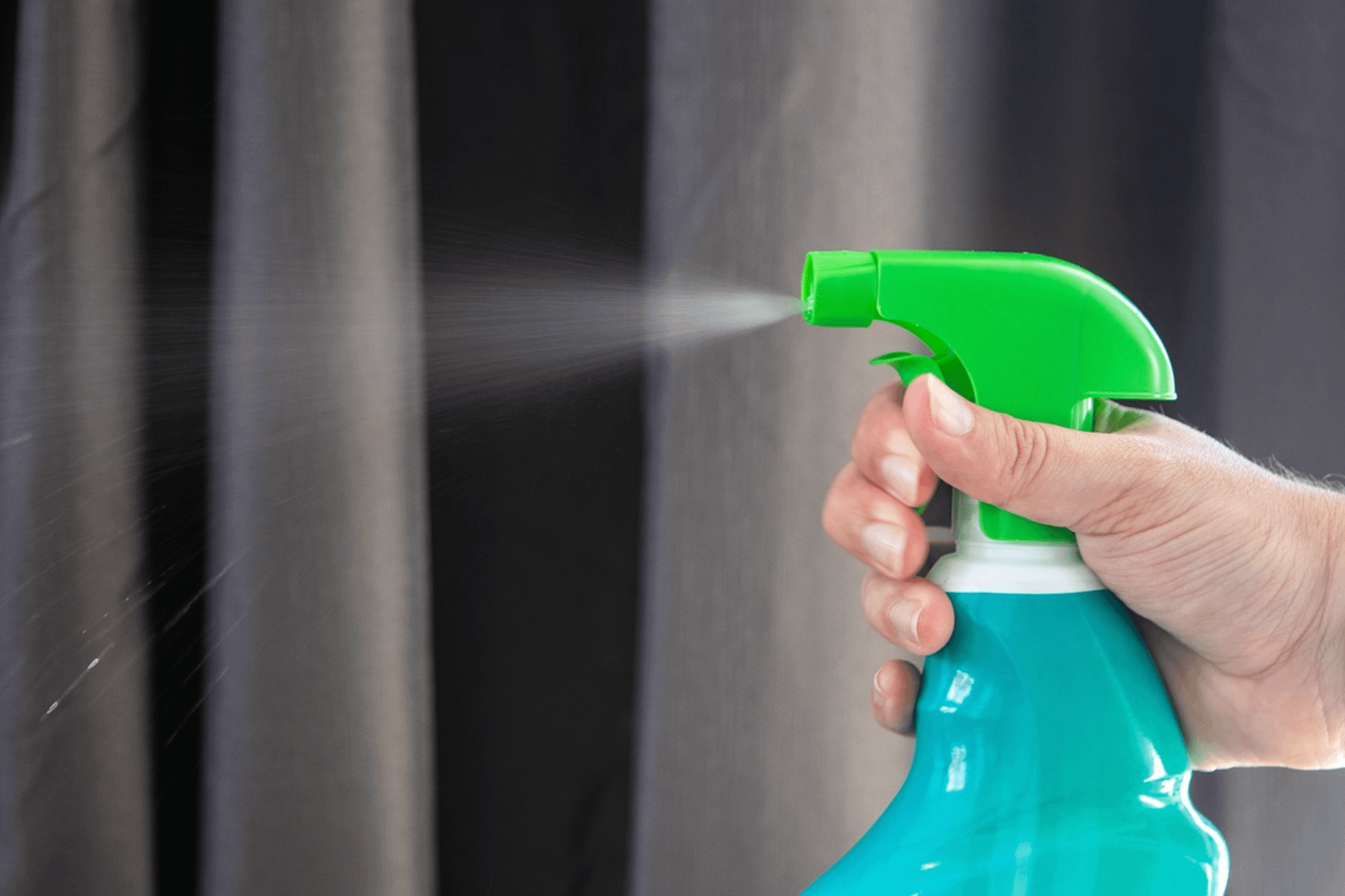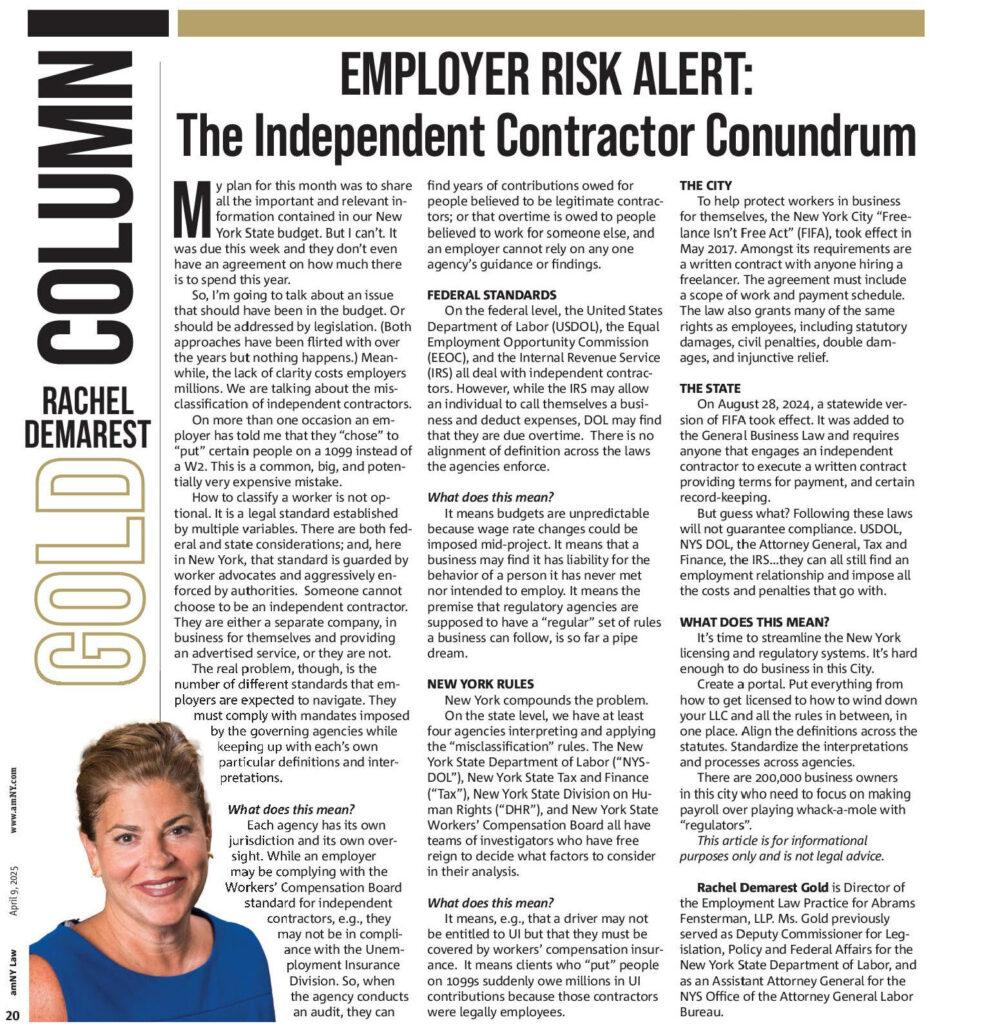NY Daily Record
By Kristen D’Andrea
Dolan Media Newswires
Posted: 4:42 pm Mon, July 11, 2011
Long before Arnold Schwarzenegger spotlighted the complicated issues that can arise when employing a household staff, Zoe Baird brought domestic workers to the attention of Americans for an entirely different reason.
On track to become America’s first female attorney general in 1993, Baird was exposed, and her nomination ultimately withdrawn, for having employed two undocumented Peruvians in her home and paying them off the books in a scandal touted by many as “Nannygate.”
Nearly 20 years later, much has changed while much has remained the same. In November 2010, New York State’s Domestic Workers’ Bill of Rights took effect, offering protections for domestic workers including nannies, companions for the elderly and housekeepers. While the law is the first in the nation to hold employers of domestic workers accountable, several employment law and immigration law attorneys worry those who need it most remain unaware of their rights.
According to Priscilla Gonzalez, director of Domestic Workers United, an organization composed of more than 5,000 Caribbean, Latina and African nannies, housekeepers and elderly caregivers in New York, there are more than 200,000 domestic workers – 99 percent female and 95 percent foreign-born – across the state.
Some features of the new legislation include requiring employers to provide household staff members with at least 24 consecutive hours off work each calendar week; set work weeks at 40 hours, or 44 for live-in help; compensation of 1.5 times the employee’s normal wage rate for any additional time worked; and, after a year of employment with the same employer, three days of paid vacation each year. The law also protects domestic workers from sexual harassment and entitles them to disability benefits.
“I don’t think the statue has hit people yet,” said Sharon P. Stiller, partner and director of the employment law practice at Abrams Fensterman, Fensterman, Eisman, Formato, Ferrara & Einiger LLP. “There hasn’t been a lot of litigation surrounding it yet.”
In fact, the majority of calls she’s received regarding the bill have involved people who didn’t realize their situation fell within the statute, Stiller said. “Most people either don’t know about the legislation or don’t understand the distinction between them being the employer or another agency being the employer,” she said. If people directly hire a companion or caregiver for their parents, for example, they need to make sure they comply with the protections offered in the bill of rights. However, if a companion is hired through an agency, then the agency is responsible for complying with the regulations of the bill.
Stiller also cautioned employers to make sure they understand the costs attended to complying with the legislation. For instance, she said, if an agency will provide an elderly companion for $12 an hour but an individual is looking to directly hire a companion or home care aide for $9 an hour, potential employers should factor in the cost of complying with the statute.
“The true cost might be quite a bit more when you allow for the overtime provision and paid vacation,” she said. “You have to make sure you’re comparing apples-to-apples and not apples-to-oranges.”
As for domestic workers, “the vast majority have no clue what their rights are,” said Robert Lipman, of Long Island-based Lipman & Plesur, LLP.
In New York state, Lipman said, wage hour violations are taken extremely seriously. In April, the Wage Theft Prevention Act went into effect, requiring employees to be given wage and other information, in writing, at the time of hire, and annually by Feb. 1 of each year.
“The days of paying someone off the books and below rate are over,” Lipman said. Having handled wage and hour issues for the last three decades, Lipman said he’d never worked with a criminal lawyer on such matters until recently. The new wage law calls for both civil and criminal penalties for wage payment, notice and record keeping violations.
Gonzalez is hopeful the level of awareness is being raised. An informal scan of parenting blogs shows increased inquiries and questions about the bill of rights, she said. “To us, that’s an indication that, culturally, employers are beginning to think like employers.” Historically, she said, domestic workers have not been viewed as real workers, by either society or the law.
Still, Lipman said the laws are improving but questioned their significance when applied to undocumented workers. The hiring of undocumented workers – an issue Long Island has been battling for years – is relied on by many Long Island industries including farming, hospitality, restaurant and landscaping.
“The [Domestic Workers’ Bill of Rights] is not too hard to comply with – unless you hire undocumented workers,” Lipman said.





